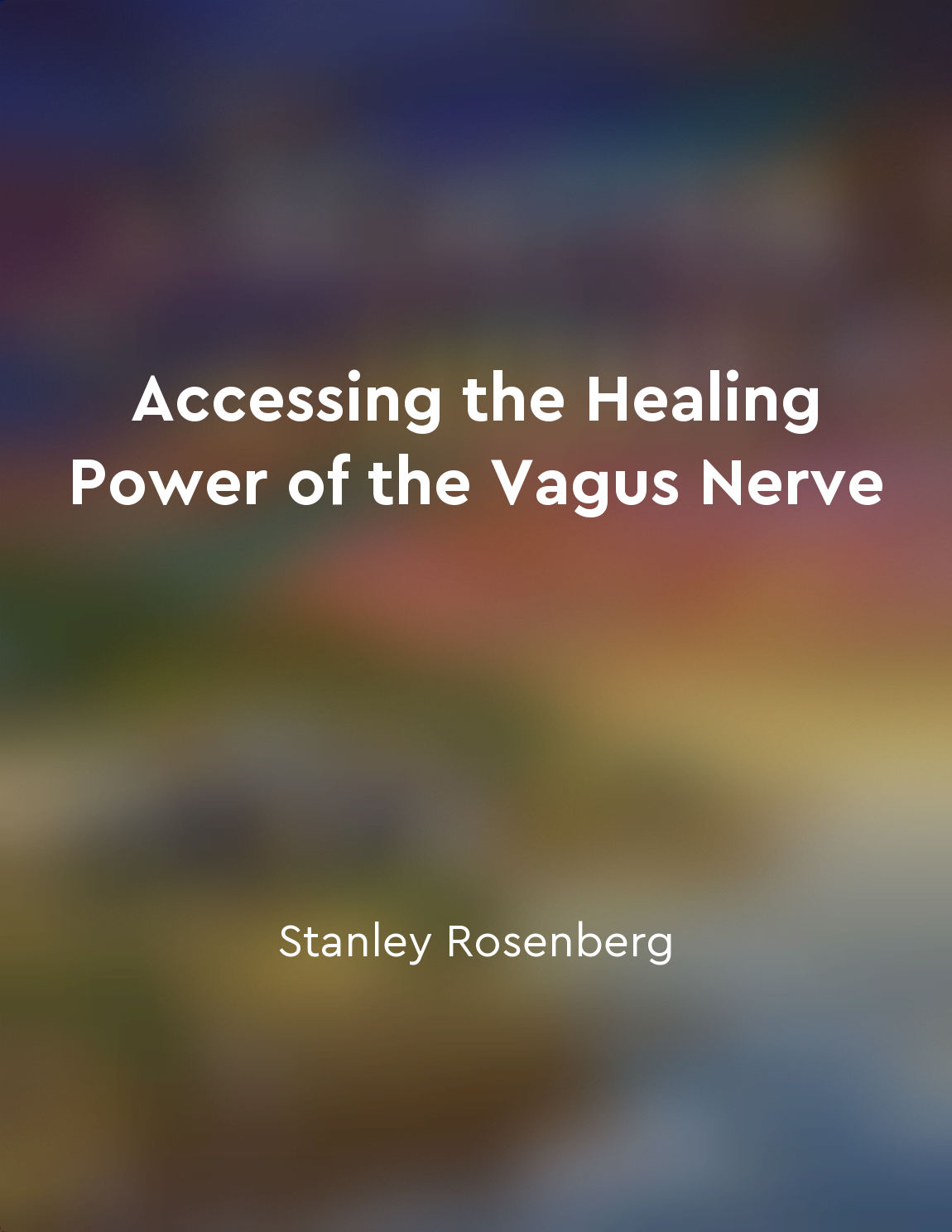Learning to regulate our emotions can enhance vagal function from "summary" of Accessing the Healing Power of the Vagus Nerve by Stanley Rosenberg
When we learn to regulate our emotions, we can have a positive impact on the function of our vagus nerve. Our emotions play a significant role in the regulation of our autonomic nervous system, which includes the vagus nerve. By developing our ability to manage and respond to our emotions in a healthy way, we can enhance the functioning of the vagus nerve. Emotions such as fear, anger, and anxiety can trigger the sympathetic fight-or-flight response, leading to increased heart rate, shallow breathing, and heightened stress levels. These responses can negatively impact the function of the vagus nerve, which is responsible for promoting relaxation and restorative processes in the body. By learning to regulate our emotional responses, we can activate the parasympathetic nervous system, which helps to calm the body and mind. Practices such as deep breathing, mindfulness, and self-awareness can help us regulate our emotions and activate the parasympathetic nervous system. These practices can help us shift from a state of stress and tension to one of relaxation and calm. As we continue to engage in these practices, we can strengthen the connection between our emotional responses and the function of the vagus nerve.- We can enhance the function of the vagus nerve, leading to improved overall health and well-being. By cultivating emotional awareness and developing healthy coping mechanisms, we can support the function of the vagus nerve and promote a sense of balance and harmony in our bodies. Learning to regulate our emotions is a powerful tool for enhancing vagal function and promoting optimal health and vitality.


